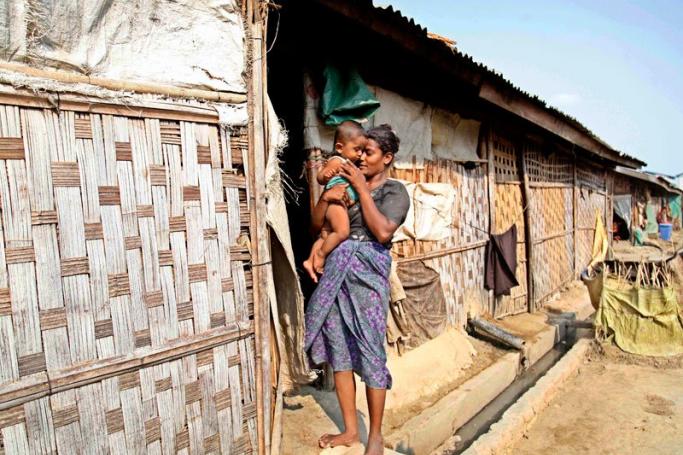Twenty-seven international humanitarian aid and advocacy organisations have written today, 20 May, to the United Nations Secretary-General, urging him to give his “personal attention” to the humanitarian crisis in Rakhine State, Myanmar (Burma) and to take "a personal lead" in negotiating for humanitarian access to all areas of Rakhine State.
In an open letter, the NGOs quote the UN Assistant General-Secretary for Humanitarian Affairs, Kyung-hwa Kang, who said after visiting camps for internally displaced people in Rakhine State in June 2014 that: “I witnessed a level of human suffering in the IDP camps that I have personally never seen before ... appalling conditions .... wholly inadequate access to basic services including health, education, water and sanitation.”
Those words echo the words of the Under Secretary-General for Humanitarian Affairs, Baroness Amos, who said after visiting the camps in December 2012: “I have seen many camps during my time but the conditions in these camps rank among the worst. Unfortunately we as the United Nations are not able to get in and do the range of work we would like to do with those people, so the conditions are terrible ... It's a dire situation and we have to do something about it.”
At least 70 per cent of Rohingya currently have no access to safe water or sanitation services. In Maungdaw Township, there is just one doctor per 160,000 people. The World Health Organisation recommends one doctor per 5,000 people. Only two per cent of Rohingya women give birth in a hospital.
In the letter, the NGOs say, “While the crisis is most acute in the camps, it is important to note that around 800,000 Rohingya living outside the camps are also in urgent need of assistance. In some areas the rates of malnutrition are over 20 per cent and the provision of health services is almost non-existent.”
They also argue, “. . . it is essential also that humanitarian aid is not only provided to the Rohingya, but also to all those in need of assistance. Rakhine State is the second poorest state in Myanmar, where 44 per cent of the population lives below the poverty line - almost twenty per cent more than the average in most parts of Myanmar.”
The NGOs conclude their appeal by recalling Ban Ki-moon's efforts in the aftermath of the humanitarian disaster following Cyclone Nargis. They write: “Mr Secretary-General, in 2008 following the appalling humanitarian crisis after Cyclone Nargis, the regime in Myanmar initially refused access to international aid organisations. You personally took charge of the effort by the international community to negotiate access, and you succeeded. As a result, hundreds of thousands of lives were saved. We believe the crisis in Rakhine State demands a similar response, and we therefore urge you to take a personal lead in negotiating with the Government of Myanmar for humanitarian access to all areas of Rakhine State, for humanitarian aid to be provided to all in need, regardless of race or religion. Hundreds of thousands of people who have little food, medicine or shelter and have been stripped not only of their citizenship but also their basic dignity are looking to you and to the United Nations for help. We appeal to you not to fail them.”
You are viewing the old site.
Please update your bookmark to https://eng.mizzima.com.
Mizzima Weekly Magazine Issue...
14 December 2023
New UK Burma sanctions welcome...
13 December 2023
Spring Revolution Daily News f...
13 December 2023
Spring Revolution Daily News f...
12 December 2023
Spring Revolution Daily News f...
11 December 2023
Spring Revolution Daily News f...
08 December 2023
Spring Revolution Daily News f...
07 December 2023
Diaspora journalists increasin...
07 December 2023
PPP candidate interested in extracting resources from mountains east of Pyinmana












